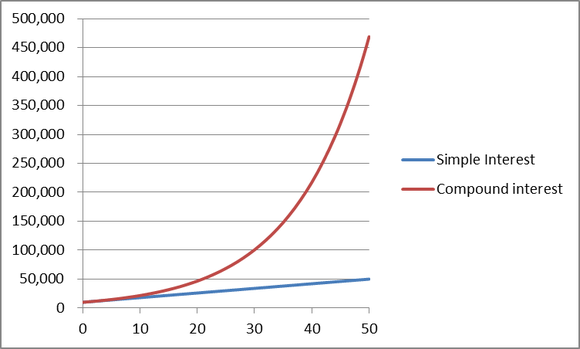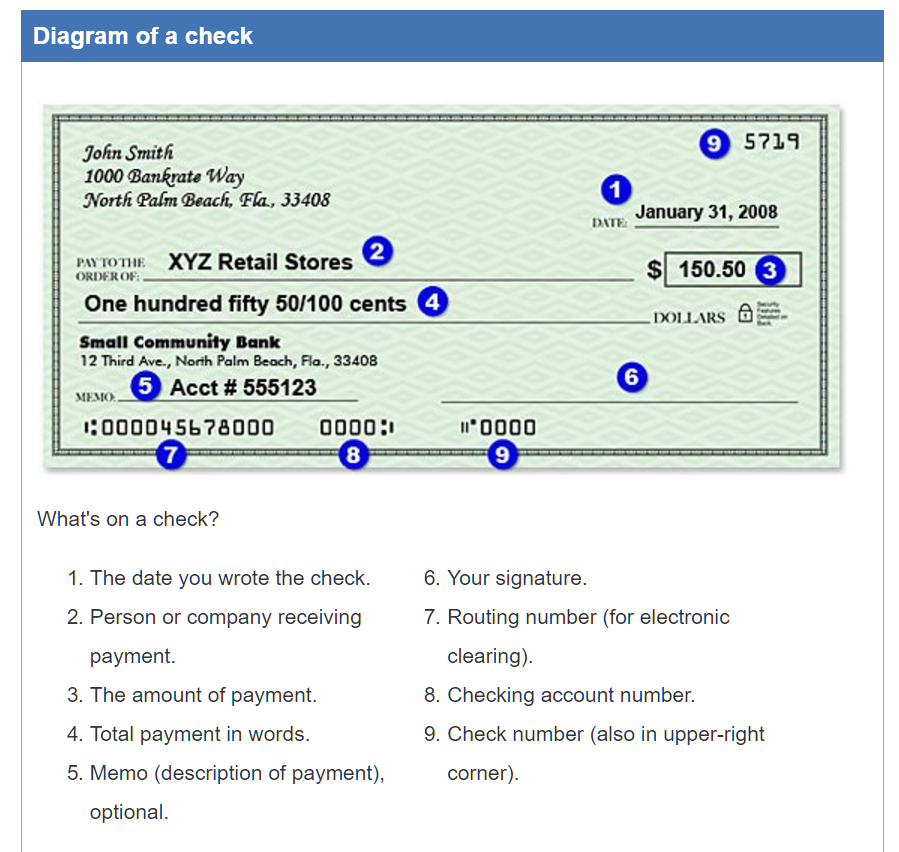
Counting, Changing, and Managing Money

6 Great Websites With Money Games for Kids Actually there are 4 games here - Escape from Knab and Bad Credit Hotel have bad links.:( Collected and evaluated by the good people at Educational Freeware (Check them out!) Lots of sites teach counting money and making change - these teach managing money! "A combination of both private and public organizations have created a high quality collection of websites that are fun for kids but also teach important lessons about finances and managing money." You should know that if EF likes them they are GOOD. Go have a look!
Banking Explained – Money and Credit This 6:09 video from KurzGesagt ("in a nutshell"), explains:
BetterMoneyHabits.com™
is a team effort by Bank of America and Khan Academy. "You're on your
way to Better Money Habits™ Build your financial know-how with free
tools and information to help you make more confident decisions. It's a simple
way of getting real, practical knowledge, brought to you by Bank of America
in partnership with Khan Academy." Featuring gobs of instructional videos
- learn at your own pace! A big Thank You to BoA and KA for these! Videos
are organized this way:
These videos don't discuss credit unions. Credit Unions also have checking, savings, give loans, & have credit cards. In your personal financial situation, credit unions might be a better way to go (or not). Credit unions cost as little as $5.00 to join. Some banks do not like them.
Biz Kid$ "The place where kids teach kids about money and business." The site is a part of the PBS educational TV show aimed at teenagers. Financial literacy is the starting theme here, along with tips about running businesses. Each episode has lesson plans and activities to reinforce the theme being taught, as well as funny videos with a point. Episodes for older learners include videos of young people in family businesses teaching everything from the importance of wills to purchasing new equipment. Their teachers section has .pdf curricula and .pdf lesson plans and activities. There are also some decent games. Episode themes are as follows:
It would take much more space to do justice to this site. Teachers of financial literacy and business for teens could customize the material to fit their needs.
Change Maker from Funbrain teaches kids to make change using the count-up method. Click the coins to make change, then press Go. Thanks, Mel.
Count the Money from Math Playground. Add coins to make a given amount in dollars and cents. Good graphics. Thanks Dustin
Counting Change from Quia is a matching game. Match a money amount ("$.25") with its coin equivalent ("2 dimes + 1 nickel"). Uses Java. Thanks Mel.
Counting Money from ABCya! Very good interactive with sounds, four different difficulty levels, US coins and dollar denominations. You can make this game give a false result if you put in coins where dollars would have fit (such as putting in four quarters instead of a dollar bill), so discourage your kids from doing that. This was actually fun to play - loved the tropical fish!
Counting Money from Harcourt. Simple but good coin counting activity.
Counting Money from Northpole. Counting coins and bills, from an excellent Christmas activity site.
Dollar-a-Glass Game from BizKids. A new lemonade stand game that is colorful, fast-paced and gives lots of choices for players. Lets you practice running a small business.
Dollars and Cents from Sheppard Software is part of their big math section, which is already in our Mathematics area.
Educational
games from Digipuzzle.net.
"On this page you can find the overview of the educational games from
Digipuzzle.net. All games can be played full screen on a PC, a tablet (Android
Tablets, iPad, etc) or mobile phone (Android, iOS)." Here's a diverse
group of kids' games, from numeracy to multiplication, with some early language
arts, some geography, time, hieroglyphics, and some money math. Here they
are by subject with the number of games in parentheses:
A big Thank You to Marcel van de Wouw. These are nice!
 FSI
- Fraud Scene Investigation presents Suitable Investments. Interactive
mystery for upper elementary and on up. Get Grandma's life savings back from
the scammers of Suitable Investments! "Fighting crime can teach you a
lot. No matter how convincing a scam’s sales pitch may sound, there
is always something that just doesn’t feel right. Join our hero Kim
as she digs out the truth about a million dollar investment scam. Along the
way you’ll discover more about companies, stock reports, investments
and white collar crime."
FSI
- Fraud Scene Investigation presents Suitable Investments. Interactive
mystery for upper elementary and on up. Get Grandma's life savings back from
the scammers of Suitable Investments! "Fighting crime can teach you a
lot. No matter how convincing a scam’s sales pitch may sound, there
is always something that just doesn’t feel right. Join our hero Kim
as she digs out the truth about a million dollar investment scam. Along the
way you’ll discover more about companies, stock reports, investments
and white collar crime."
From the creators of Coolmath4kids comes Finance Freak. It's for grades 6 - 12 and adults. "Figuring out how to make money is one thing... Knowing how to make the most of what you make is another! People with average (even modest) incomes can learn to be smart, get out of debt and retire rich. The most important thing is to start now... and you're at the right place to do that!" Seven sections teach you about:
These are all multipage and in-depth, but simply explained. It's your money, so find out how to make it give you all it possibly can!
Financial Literacy For Kids and Teens! Here are links to 28 financial education sites for kids, tweens, teens, and teachers! Some have lesson plans, too. Earning, saving, investing, bonds, the stock market, stock portfolios, borrowing and interest, what banks do, checking accounts, the Fed, currency exchange rates, recessions, inflation, the history of money, and more!
Financial Literacy Math Quizzes from How to Save Money has over 40 easy to hard quizzes. These cover the four basic operations, with money; adding coins and bills and combinations (with pictures of the coins and bills); calculating tips; and advanced quizzes in mortgages, loans, future value, rate of return, credit cards, etc. Other quizzes cover acronyms such as CPA & ROI, whose face is on what bill, etc. There's something here for elementary through high school.
H.I.P. Pocket Change is the US Mint's kid site. Very lively, features games, fun online activities, and cartoons, all of which is to teach children about coins and coinage.
Hands
On Banking presents basic money management in an easy to use
format. Age-customized for four age groups from 4th & 5th grade,
6th-8th grade, teens, and adults. Also has a special section on entrepreneurship.
From Wells Fargo, requires Flash.
Kids Guide to Understanding Banking A web article by Chloe Mayer. Here's a well organized page that covers banking, understanding savings and checking accounts, and managing money. It's designed for parents and kids both, as a guide for parents teaching their kids about money. It's organized under five topic headings, as follows:
Each has from four to six links to more information, all from reputable organizations such as the American Bankers' Association, Consumer Financial Protection Bureau, Time Magazine, CNN, and Smart Money. (Very) Belated thanks to Chloe Mayer for her email about her web article, and yes, it is very useful!
Learn To Count Money This is Play To Learn's money counting game.
Learning Coins from ABCYa! A child's first introduction to US coins. A talking coin explains each coin's value, who/what is on the faces, compares to other coins. Then there is a very easy quiz.
![]() Mathematics
in Banking – Compound Interest This short article outlines simple
and compound interest and shows the equations for each while explaining the
differences. You are walked through a problem where an amount ($5,000) is
held 5 years at 4% compounded quarterly. Walking through the compound interest
formula, you find the interest earned in 5 years is $1100.95. The power of
compound interest is how greatly your money grows over time. Two statements
from this article sum it up:
Mathematics
in Banking – Compound Interest This short article outlines simple
and compound interest and shows the equations for each while explaining the
differences. You are walked through a problem where an amount ($5,000) is
held 5 years at 4% compounded quarterly. Walking through the compound interest
formula, you find the interest earned in 5 years is $1100.95. The power of
compound interest is how greatly your money grows over time. Two statements
from this article sum it up:
" (1) The more frequent the compounding, the more money you can make.
(2) The longer you allow your money to remain in the account, the greater is the final amount you receive."
This chart from The Motley Fool shows what your money does over 50 years. Compound interest is your friend.

Money as You Grow – Kids and Money. "20 things kids need to know to lead financially smart lives. 20 essential, age-appropriate financial lessons—with corresponding activities—that kids need to know as they grow." The lessons are distributed across five age groups: ages 3-5, 6-10, 11-13, 14-18, and 18+. Lesson 1 is "You need money to buy things." Lesson 20 is "When investing, consider risks and annual expenses." Each lesson comes with several learning activities. Looks good.
Money in Your Pocket from NumberNut. Discusses coins, has four coin counting activities. These are great and you ought to try them.
Money Math Time! "...is a site I am working on with my son, who is 6. It started as an online version of a game he likes to play where I show him random coins and if he can tell me their value, he can keep them. This shows some coins for the visitor to add up. You get 2 chances. We are working other games to add to the site, also." Well we played these and they were fun and well made. Kudos to Matt Cleveland who emailed us about his site.
Money Topics from AAA Math. Covers coins, change, adding & subtracting money, and consumer math. Uses the typical AAA Math format.
Pocket
Change
from
Rich Kid Smart Kid Four games that teach financial literacy. The best part is that each game has four levels of complexity, for ages 7 - 18. Also has lesson plans. Each game covers a different idea; from investing, working, profit and loss, product placement.
The Story of Banks explains the different kinds of banks & similar institutions, in an easy to understand comic book form. Three young pretzel makers learn the ins and outs of banking as they grow their business into a food empire! Factual and entertaining for secondary school students. Downloadable pdf from the New York Federal Reserve.
![]() This
is what happens when you write a check from Bankrate.com
This
is what happens when you write a check from Bankrate.com

Read this articla and follow your check as it winds through the bowels of our financial system.
Two Good Explanations of Compound Interest from Free Technology for Teachers. "How compound interest works is a concept that every middle school or high school student should learn as it helps them see the value of saving money in a bank account." - Richard Byrne (or mutual funds) We think that each of these "does a nice job of explaining the concept in a way that middle school and high school students can understand." Both are different, but different learning styles will get one or both. To see more and get the URL addresses for these, click on the link. In fairness to Mr. Byrne, who found these, you should visit his site first :)
I'm only four months old! What's money? Is it good to eat?
![]() to top of page
to top of page ![]()
![]() to Good Sites
to Good Sites